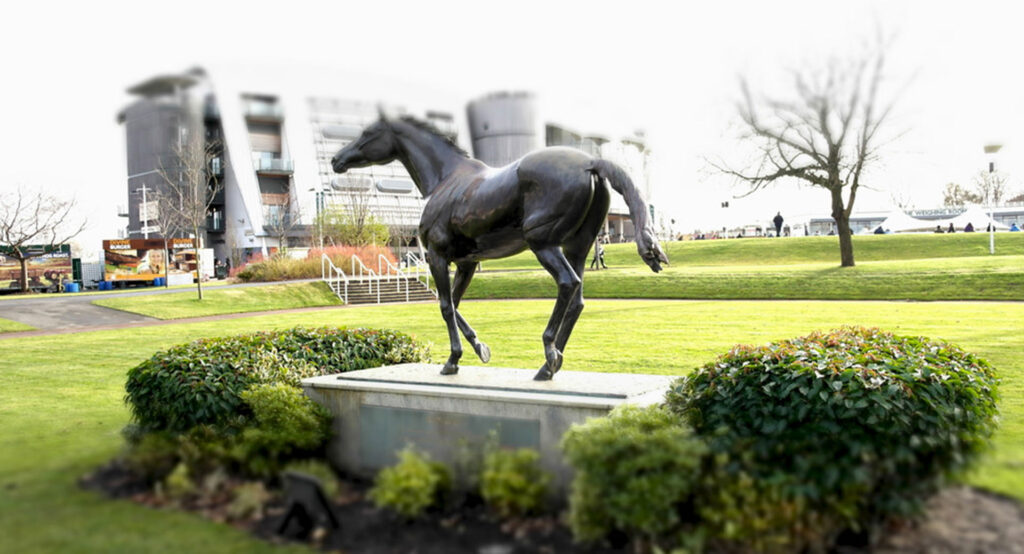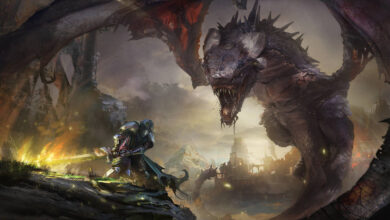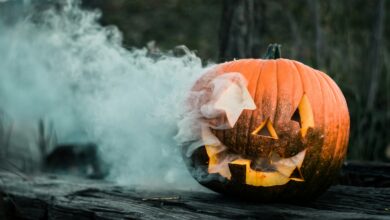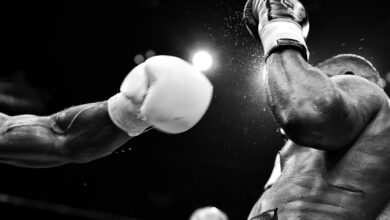15 Fast Facts About the Grand National: A Must-Read Guide

The Grand National is one of the most prestigious and thrilling horse races in the world, attracting millions of viewers each year. For over 180 years, this iconic event has been a staple of British culture, captivating audiences with its heart-pumping action and breath taking displays of equine athleticism. If you’re a fan of horse racing, you won’t want to miss this must-read guide, packed with 15 fascinating facts about the Grand National that are sure to leave you on the edge of your seat. From legendary winners to shocking upsets, this blog post has it all. So sit back, grab a cup of tea, and get ready to discover the secrets behind one of the most exciting events in sports history.
The inaugural Grand National race was held in 1839 at Aintree Racecourse near Liverpool, England.
1 The race was won by a horse named Lottery, who was ridden by jockey Jem Mason. Since then, the Grand National has become one of the most prestigious and challenging horse races in the world, attracting top horses, jockeys, and trainers from around the globe.
The course for the Grand National is widely regarded as one of the most challenging in the world of horse racing.
2 It is four miles and 514 yards (6.907 kilometres) long and features 30 jumps, including iconic fences like Becher’s Brook, The Chair, and the Canal Turn.
The gruelling nature of the course, combined with the large field of runners, makes the Grand National a thrilling and unpredictable race that requires skill, stamina, and a bit of luck to win.
The Grand National has been cancelled 11 times throughout its history, with the first cancellation occurring in 1916 due to World War I.
3 The race was also cancelled during World War II, with the last cancellation taking place in 1993 due to a bomb threat. The Grand National has also been cancelled due to adverse weather conditions, such as heavy rain and snow, which can make the course unsafe for horses and riders.
Despite these interruptions, the Grand National remains one of the most popular and highly anticipated events on the horse racing calendar.
Red Rum is widely regarded as one of the greatest racehorses in history, and he had an incredible record in the Grand National.
4 Trained by Ginger McCain, Red Rum won the race three times, in 1973, 1974, and 1977, and finished in second place in both 1975 and 1976.
Red Rum’s impressive record in the Grand National has made him a beloved figure in the world of horse racing, and he is still remembered and celebrated by fans of the sport today.
Bruce Hobbs was only 17 years old when he rode Battleship to victory in the 1938 Grand National, making him the youngest jockey ever to win the race.
5 Hobbs was a talented and fearless jockey, and his victory in the Grand National remains one of the most remarkable achievements in the history of horse racing.
Over the years, many other talented jockeys have followed in Hobbs’ footsteps and won the Grand National, but his achievement as the youngest ever winner remains a testament to his skill and determination.
Dick Saunders was the oldest jockey to win the Grand National, achieving the feat in 1982 at the age of 48.
6 Saunders rode the horse Grittar to victory that year, in what was a memorable and emotional moment for him and his team. Saunders’ achievement is a testament to the skill and experience that comes with years of riding, and it remains an inspiration to jockeys of all ages who dream of winning the Grand National.
Mr. Frisk holds the record for the fastest winning time in Grand National history, completing the race in just 8 minutes and 47.8 seconds in 1990.
7 Ridden by jockey Marcus Armytage and trained by Kim Bailey, Mr. Frisk led from the start and put in a dominant performance to win the race by a comfortable margin.
The record-breaking time set by Mr. Frisk remains an impressive feat and a testament to the horse’s speed, stamina, and skill.
It is estimated that over 600 million people in more than 140 countries tune in to watch the Grand National each year.
8 While the exact number of viewers may vary, the Grand National is indeed one of the most widely watched sporting events in the world. Making it one of the biggest and most prestigious horse races on the planet.
The race has a long and storied history, and its reputation for being a challenging and unpredictable event has helped to draw in millions of fans from all around the globe.
The prize money for the Grand National is around £1 million.
9 In recent years, the total prize fund for the Grand National has been around £1 million, but the exact amount can vary from year to year depending on various factors such as sponsorship and other financial considerations.
The record for the most runners in the Grand National was set in 1929, when a total of 66 horses competed in the race.
10 The large field of runners made for a thrilling and chaotic race, with many horses falling or being held up by traffic on the course.
Since then, the number of runners in the Grand National has been limited to a maximum of 40 horses, in order to ensure the safety of both the horses and the jockeys.
Despite this limitation, the Grand National remains one of the most exciting and unpredictable horse races in the world, with fans tuning in from all around the globe to see who will emerge victorious.
The Grand National is famous for its challenging and iconic fences, including Becher’s Brook and The Chair.
11 These fences are unique to the Grand National and are known for their size, height, and difficulty, with many horses and riders struggling to navigate them successfully.
Becher’s Brook is particularly challenging, with a steep drop on the landing side that has caused many horses and jockeys to fall or stumble over the years.
The Chair, which is the tallest fence on the course, is also a daunting obstacle for many horses, requiring them to jump a fence that is nearly 5 feet high.
These challenging fences are part of what makes the Grand National such a thrilling and unpredictable race, and they continue to test the skill and bravery of the world’s best horses and jockeys every year.
The Grand National is one of the most iconic and well-known horse races in the world, and it has been featured in numerous films and TV shows over the years.
12 For example, in the TV show “Peaky Blinders,” the main character Thomas Shelby is seen placing a bet on the Grand National, while in “The Crown,” the Queen’s love of horses is showcased through her interest in the race.
The Grand National has also been featured in other popular shows such as “Coronation Street” and “Emmerdale,” as well as in films like “National Velvet” and “Chariots of Fire.” The race’s popularity and cultural significance have made it a beloved and enduring part of British sporting heritage, and it continues to captivate audiences around the world to this day.
The 1956 Grand National is remembered for one of the most dramatic and inexplicable moments in the race’s history.
13 The race was won by a horse named E.S.B, but the real story of the day was the dramatic fall of Devon Loch, who was ridden by jockey Dick Francis. Devon Loch had been leading the race by a considerable distance and was just yards from the finish line when he suddenly and inexplicably collapsed, causing shock and disbelief among the spectators.
Many theories have been put forward to explain the horse’s sudden fall, including fatigue, cramp, or a heart attack, but to this day, the true cause remains unknown. Despite the disappointment of that fateful day, Devon Loch went on to become a beloved and popular racehorse, with his story serving as a testament to the drama, excitement, and unpredictability that make the Grand National such a beloved and enduring part of British sporting heritage.
The Grand National has inspired many songs over the years, and “The Grand National Song” by Chas & Dave, “Run for Home” by Lindisfarne, and “Red Rum” by The Scaffold are just a few examples.
14 These songs celebrate the excitement, drama, and history of the race, and are beloved by fans of the Grand National and horse racing in general.
Other songs that have been written about the Grand National include “The Day the Grand National Died” by Goldblade, “Punters on a Deadman” by Frank Tovey, and “The Biggest Show on Turf” by Danny Baker.
The popularity of these songs is a testament to the enduring appeal of the Grand National, which remains one of the most exciting and iconic sporting events in the world.
The Grand National is traditionally held on a Saturday in early April, usually the first or second Saturday of the month.
15 This has been the case for many years, and it is a highly anticipated event in the world of horse racing. The exact date may vary slightly from year to year, but it is typically announced well in advance so that fans and spectators can plan their schedules accordingly.
In 2023 it will be held Saturday 15th April.




